The young stars are out at Euro 2024 as football’s next era arrives
With the likes of Jamal Musiala, Jude Bellingham and Lamine Yamal dominating the early stages of the tournament, the first theme of Euro 2024 is clear
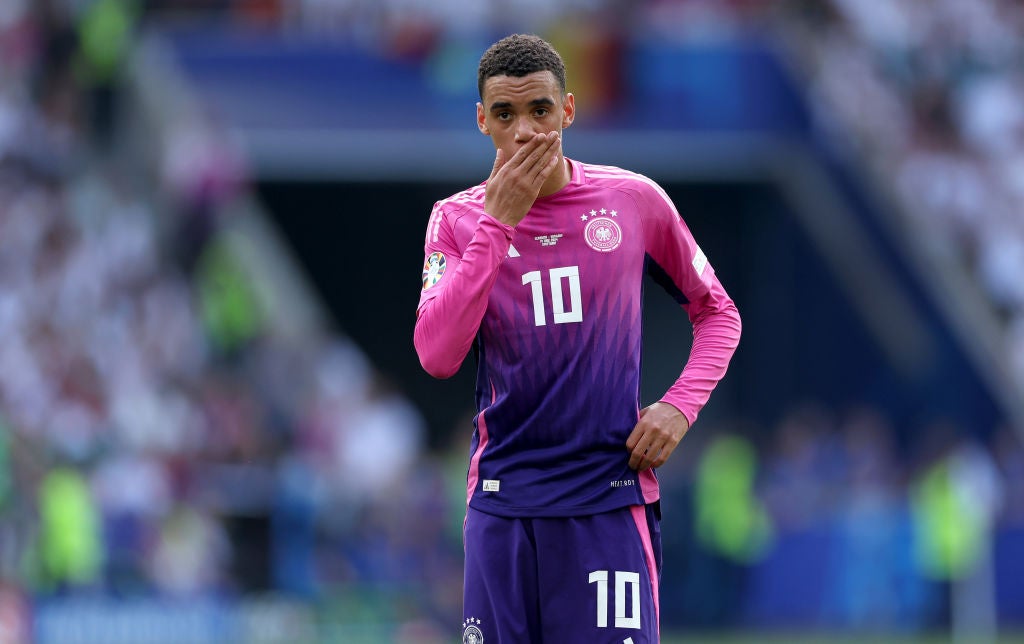
Your support helps us to tell the story
From reproductive rights to climate change to Big Tech, The Independent is on the ground when the story is developing. Whether it's investigating the financials of Elon Musk's pro-Trump PAC or producing our latest documentary, 'The A Word', which shines a light on the American women fighting for reproductive rights, we know how important it is to parse out the facts from the messaging.
At such a critical moment in US history, we need reporters on the ground. Your donation allows us to keep sending journalists to speak to both sides of the story.
The Independent is trusted by Americans across the entire political spectrum. And unlike many other quality news outlets, we choose not to lock Americans out of our reporting and analysis with paywalls. We believe quality journalism should be available to everyone, paid for by those who can afford it.
Your support makes all the difference.When Julian Nagelsmann sat down with Jamal Musiala on becoming Germany manager, he repeated a piece of advice he gave to the playmaker when they were together at Bayern Munich. That was to just keep playing as if he’s back on a small pitch having fun. Musiala’s age means that was just a few years ago, and it makes the words all the more striking, given he’s now effortlessly illuminating the greatest stage in European football.
Zinedine Zidane didn’t get this before dominating Euro 2000, when he was 28. Despite that gap, Musiala is being seen in similar terms to the French great then, at least as far as an individual European Championships goes. That is as the potential player of the tournament.
Part of that comes from Musiala’s uniquely balletic abilities, but it is also a wider shift. The majority of stand-out performers at Euro 2024 have been players that are still eligible for the under-21s or younger. Musiala’s main rival for burgeoning star, Jude Bellingham, is 20. Musiala’s teammate and scorer of the opening goal, Florian Wirtz, is 21. The scorer of perhaps the best goal, Turkey’s Arda Guler, is 19. Spain’s Lamine Yamal became the youngest player to ever appear at a Euros at a mere 16, and has thrilled alongside the 21-year-old Nico Williams in giving Spain a new intensity. The 18-year-old Warren Zaire-Emery is meanwhile considered more than ready to step in for a Didier Deschamps France, which would have been close to unthinkable during Deschamps’s time as a player with Zidane.
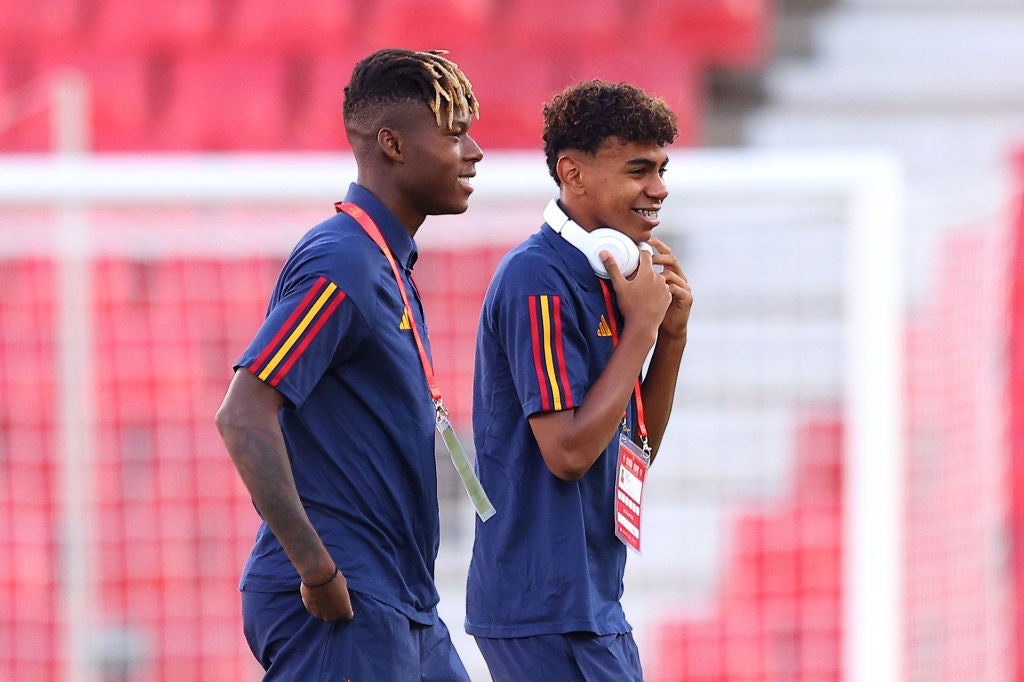
That era of course had its young sensations, not least Wayne Rooney and Cristiano Ronaldo, but the number of current starters points to something more. These young players aren’t just suddenly seizing the occasion, in a way that was hoped but not expected. They’re already just playing as if this is their level, because it is.
If that sounds an elementary point, it would have astounded managers 20 and even 10 years ago. The standard view was that international football was a level a player had to rise to, and that their prime was mid-twenties. That age was seen as the goldilocks balance between physical prowess and sufficient experience. As a rudimentary guide, the average age of the official player of the tournament in this millennium is just over 27. All of 2012 Andres Iniesta, 2008 Xavi and 2000 Zidane were 28.
For that Euro 2000, Kevin Keegan even caused excitement when he suggested an 18-year-old Joe Cole may have a chance of getting in. An exciting new precedent had been set by another sensation in Michael Owen two years before.
“Euro 2000 is not too early for Joe if he continues the way he is going,” Keegan said. “I hope he knows that. He has got to make progress and he has to make it rapidly but Michael Owen did it.”
Cole evidently didn’t make it quick enough. These days, there’d be no waiting. As we can see from some of the names this summer, someone of that talent would be thrown straight in. But then they’d already have far more senior minutes, anyway.
A simplistic point is that this is following wider trends of the club game, but this is a rare case where an international tournament articulates something bigger in the way that used to historically happen. Euro 2024 has distilled a few distinctive trends, that were evident but not yet fully discernible.
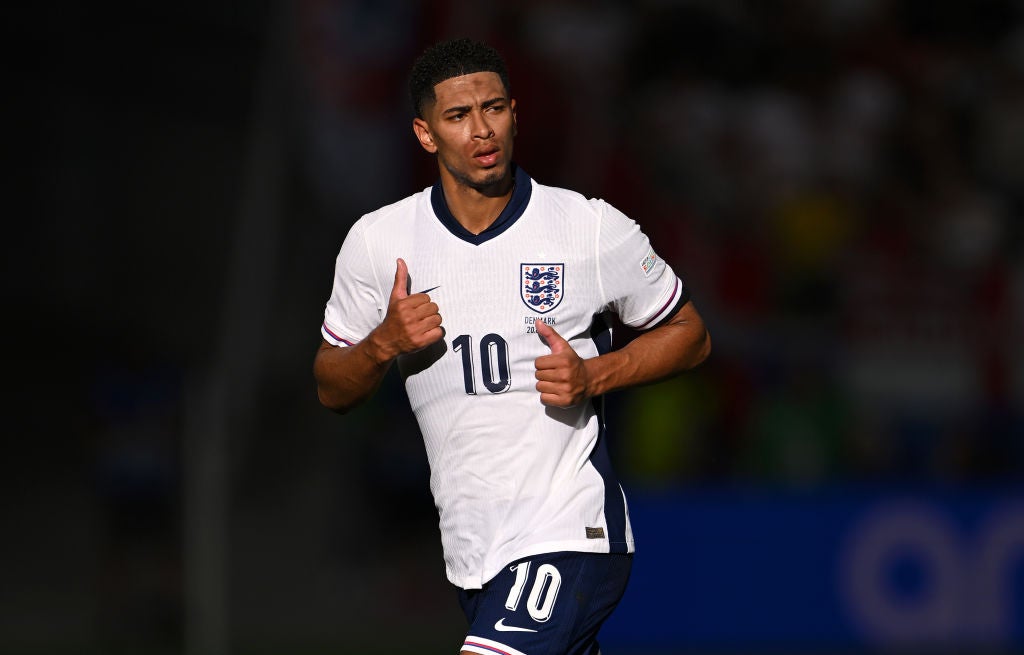
It was already becoming more visible in the transfer market, where the biggest clubs have started to buy younger. That has already started to squeeze the buy-low sell-high model of clubs like Sevilla and Borussia Dortmund. You only have to look at Real Madrid, who already have Bellingham and Guler.
The most immediate explanation for this is the tactic driving the modern game: pressing. Young players just have more energy for it, which is obvious, but there is more science behind the thinking here.
An illuminating report from the Times revealed how England’s staff have told players that the average distance to press a defender is eight metres, but it is the final metre that is the most important. While Harry Kane has struggled by that point, analytics show younger players naturally have much better engines for this.
That’s also something Real Madrid have long realised, and excelled at. It's also what managers like Luciano Spalletti mean when they talk about “intensity”. That's no longer about tempo. It’s about reaction times and speed, ensuring there is no give.
That requires more than youthful impetus, too. It requires a deeper comprehension of what coaches mean.
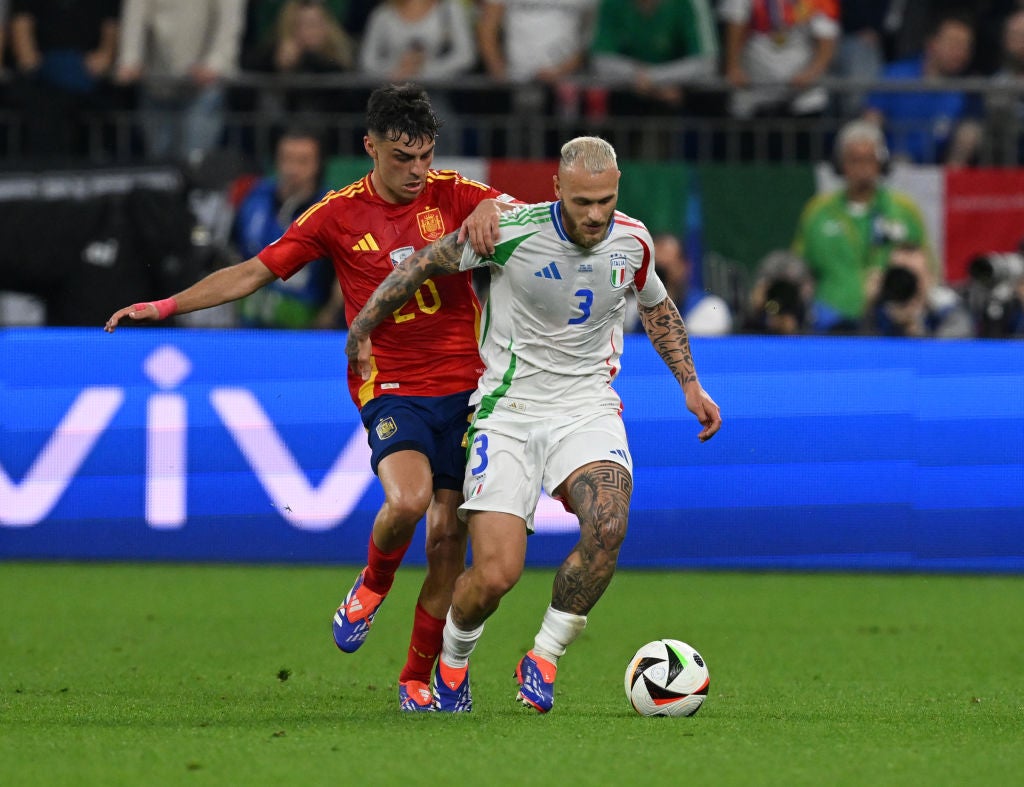
This is what the modern academy system brings. Players like Musiala and Bellingham are a direct product of that, and not just in technique. As Declan Rice spoke about the disrupted “connections” in how the England team flows after the 1-1 draw with Denmark, it was hard not to note how it was of a far greater depth than what you used to get in tournament mixed zones. That isn’t to demean players of the past. It is how football has gone, with Pep Guardiola’s re-interpretation of pressing gradually creating a far more complex sport.
“I think it’s just connections all over the pitch,” Rice said. “You need to have your connections. We work on our pressing all the time.
“If you don't get your press right, which probably is the most important thing on the pitch, you're going to get picked off... even at club, you build everything out of your out-of-possession stuff, then your in-possession stuff, it talks for itself.”
As one figure quipped, it is like listening to Formula One drivers talking about engines, or NFL. Modern players do have to learn what are essentially “playbooks” now. It is naturally all the better if they have been ingrained in this, having already internalised a lot of the basics. They have the energy and the understanding.
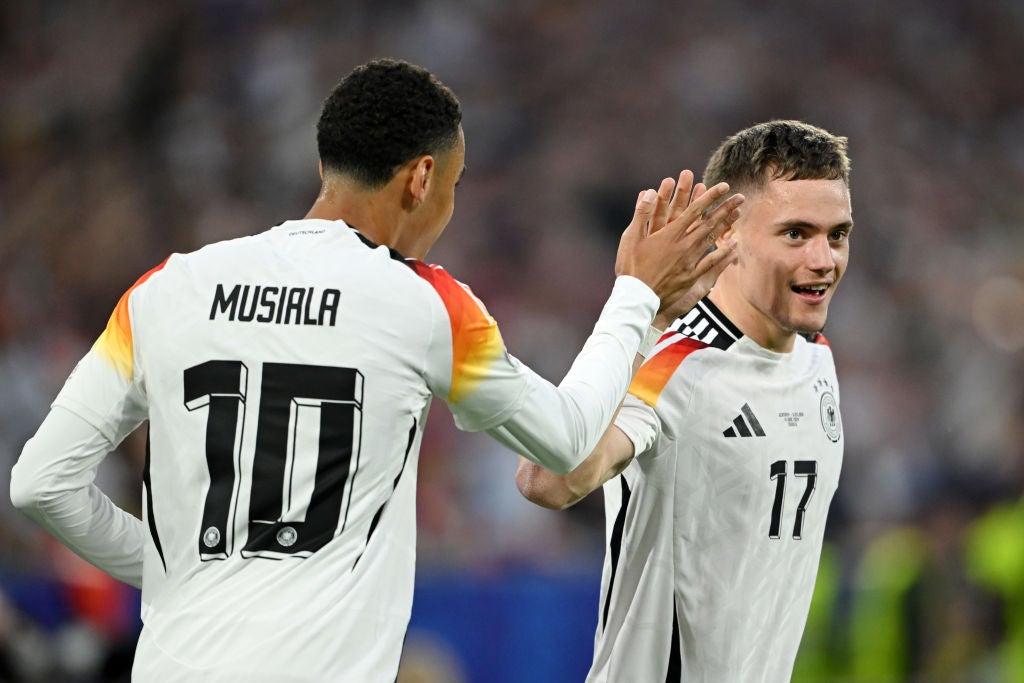
An irony is that the tournament’s average playing age so far is 27.9, which is almost a year younger than Euro 2020 but the same as Euro 2016. It is also quite old.
There is an obvious explanation for that, that actually emphasises the point. Many of the older players benefitted from the start of this academy era, and also far superior sports science. Hence Luka Modric and Cristiano Ronaldo going for much longer than past standards, and raising the age.
A question is left hanging from that, that is relevant to more contentious stories like FIFPro's legal action against Fifa. Are this generation going to be able to go as long as Modric, or even a 34-year-old Kroos? Will they even be expected to or wanted to, given there is a conveyor belt of such pressing players? Whatever about the comparisons with Formula One or NFL, some within football have pointed to the Tour de France. Winners get younger, having basically trained on professional programmes so they're ready to go at 17, with no expectation they'll be winning into their thirties. The idea of "development riders" is vanishing. Academy football is similar.
Players will have a lot more minutes at a much younger age, and all that while carrying much more of the responsibility. They’re keenly aware they’re not here for fun, no matter how their managers try to motivate them.
Join our commenting forum
Join thought-provoking conversations, follow other Independent readers and see their replies
Comments